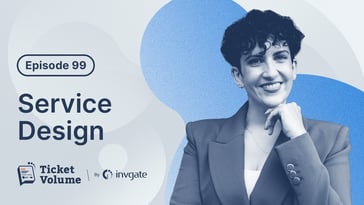What makes for a good leader?
In the world of IT, there are several characteristics that immediately come to mind. Typically, we perceive a good leader as someone effortlessly extroverted and who loves dealing with people. But, believe it or not, this is far from the ultimate truth of leadership; being an introvert doesn’t mean you can’t be an effective leader in an IT team.
What really makes a great leader is the ability to understand the different personalities in the team. To figure out their role and key strengths, and adapt to the surrounding context. This helps leaders to position their team members in a way that helps maximize their potential.
This topic is explored on the third episode of Ticket Volume, a new podcast where InvGate Product Specialist Matt Beran speaks with IT leaders to explore their views on service management, technology, and business. In the episode three, we interviewed NJ Robinson, expert in IT leadership, about what goes into managing different personalities.
NJ is a collaborative, forward-thinking IT leader with a 10-year track record of applying leadership, communication, and problem-solving skills to transform under-performing teams and make good teams great. He's a national speaker and leads in his current role for the 794th Communications Squadron.
NJ says:
At the end of the day, we're dealing with people who come to each situation in their won experiential context, their own history, their own baggage, their own thoughts and belief systems. And as a leader, you need to be able to work through and manage those different things, intricacies of that person, and to apply the right theory at the right times, and to that right person, in that right context.
In order to identify the three types of employees that managers can expect to deal with, NJ uses a sports metaphor. The three personalities he identifies are:
- The all-star. Highly motivated employees who are hungry for accomplishment and want to "kick the winning field goal, catch the winning touchdown."
- The role-players. Employees who don't have the all-star desire for attention but are driven in their own way, putting their head down and making sure the job gets done.
- The bench players. Employees who may not take on a lot of responsibility, but are happy to be on the team and contributing in their own way. They can be developed into role-players and then eventually into all-stars.
On the topic of leadership, NJ continues:
A lot of times, it's managing their energy, and doing things in their best interest though it's not something they want to do. And that's where a leader comes in. Leaders get credit for a lot of stuff, but I think the biggest thing a leader does is put people in a position to be successful. And then get out of the way so the players can play.
You can listen to the full episode above. You can also find Ticket Volume on all podcast platforms.















